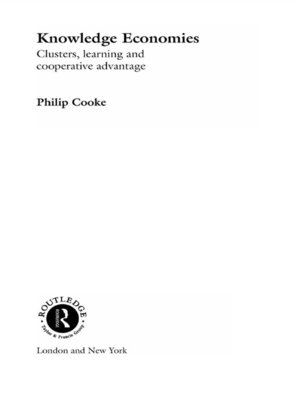Knowledge Economies
ebook ∣ Clusters, Learning and Cooperative Advantage · Routledge Studies in International Business and the World Economy
By Philip Cooke

Sign up to save your library
With an OverDrive account, you can save your favorite libraries for at-a-glance information about availability. Find out more about OverDrive accounts.
Find this title in Libby, the library reading app by OverDrive.



Search for a digital library with this title
Title found at these libraries:
| Library Name | Distance |
|---|---|
| Loading... |
This book traces the theoretical explanation for clusters back to the work of classical economists and their more modern disciples, who saw economic development as a process involving serious imbalances in the exploitation of resources. Initially, natural resource endowments explained the formation of nineteenth and early twentieth-century industrial districts. Today, geographical concentrations of scientific and creative knowledge are the key resource. But these require a support system, ranging from major injections of basic research funding, to varieties of financial investment and management, tothe provision of specialist incubators, for economic value to be realised. These are also specialised forms of knowledge that contribute to a serious imbalance in the distribution of economic opportunity.







